by Ørecomm on 2012 March 20 17:01
How do we gain senses of our times as defined by human rights – human rights as a “master term,” as Arjun Appadurai phrased it, or “cultural dominant,” in the words of Frederic Jameson? What, after all, is the aesthetic culture of human rights, and what modes of textual, intellectual-historical, critical-theoretical, sociological and philosophical-aesthetic investigation may we bring to bear on rights “culture?” Authors with human rights interests from cultural studies, media studies, sociology, history, art history, film studies, discourse studies, literary studies, philosophy, intellectual history and other relevant areas are asked to submit abstracts to contribute to a thorough treatment of the “aesthetics of human rights.”
Read here the full text of this call for contributions to the online journal Academic Quarter, published at Aalborg University, Denmark. Deadline for suggestions: 1 June; for accepted articles: 1 August 2012.
by Ørecomm on 2012 March 8 20:52
The two lectureships are open at London School of Economics and Political Science, Department of Media and Communications. The closing date for applications is 12 April 2012.
One position is open to applicants specialising in any area within the field of media and communications. We particularly welcome applications from those with expertise that contributes to understanding the social, political, economic and/or cultural dimensions of social and technological change in today’s complex mediated environment.
The second position involves a significant contribution to our MSc in Media, Communications and Development. We particularly welcome applications from those specialising in critical approaches to media, communication and development in low income countries, the role of media and communications in human rights and/or and struggles over media, development and governance in the global south.
For more information and on how to apply, see here.
by Ørecomm on 2012 February 2 14:20
The candidate needs to show an active research profile within the broad field of media and development, preferably with a focus on one of the regions of the SOAS remit. A critical engagement with development theory and practice is welcome, involving not only economic but political, social and cultural change, as having impacts on the environment and cultural habitus and as best determined by people themselves rather than by external agencies.
Closing date: 2 March 2012. More info here.
by Ørecomm on 2012 January 9 16:23
The lectures will be held 10-12 am, Friday 27 January 2012
at Roskilde University, room 43.3.29.
Cees Hamelink:
Communication and the Escalation of Evil
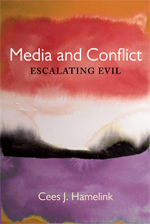 The lecture is based on Cees Hamelink’s recent book Media and Conflict. The world faces explosive conflicts about the distribution and scarcity of resources, about ethnicity and religion, and about the risks of urban life. These conflicts can easily spiral out of control toward mass slaughter an evil of huge proportions that is often escalated by the media. What should be done to prevent this lethal trend? We need to understand how the spiral of escalation works. How do media create anxiety, provide space for agitation, and disconnect people?
The lecture is based on Cees Hamelink’s recent book Media and Conflict. The world faces explosive conflicts about the distribution and scarcity of resources, about ethnicity and religion, and about the risks of urban life. These conflicts can easily spiral out of control toward mass slaughter an evil of huge proportions that is often escalated by the media. What should be done to prevent this lethal trend? We need to understand how the spiral of escalation works. How do media create anxiety, provide space for agitation, and disconnect people?
[Both Cees Hamelink’s and Robin Mansell’s videorecorded lectures are available here.]
Robin Mansell:
Social Imaginaries of Communication Technologies
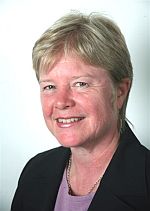 This lecture compares and contrasts two of most predominant social imaginaries of the causes and consequences of innovations in the production and use of communication technologies, critically considering the way they embrace oppositional visions of the information society and their implications for social change. The differences between them are considered in terms of the normative goals of the ‘good society’, concluding with some observations about what changes in policy and practice are essential.
This lecture compares and contrasts two of most predominant social imaginaries of the causes and consequences of innovations in the production and use of communication technologies, critically considering the way they embrace oppositional visions of the information society and their implications for social change. The differences between them are considered in terms of the normative goals of the ‘good society’, concluding with some observations about what changes in policy and practice are essential.
For a more detailed presentation of lecturers and lectures see leaflet here.
by Ørecomm on 2011 September 11 19:54
Glocal Times – The Communication for Development web magazine has issued its no. 16, now available online here. This issue contains a number of articles by graduates from the ComDev master’s programme at Malmö University, with a great variety of themes: “Mobile phones in Tanzania: tools for social change?”, “The field diary as a bridge between theory and practice”, “Using social media for conservation fundraising in Kenya”, “The International Tribunal on Climate Justice: cultural meanings and social change”, “Using participatory photography to stimulate critical thinking”, “Looking for agency in film for change”. And an editor’s column on “The new spectre – Mediatization”, by Oscar Hemer, Ørecomm co-director.
by Ørecomm on 2011 June 8 20:00
The use of the entertainment-education (E-E) communication strategy (also known as “enter-educate” or “edutainment”) to address social and development topics has risen sharply in recent decades. With the growing number of entertainment-education (E-E) interventions worldwide, and the extensive evaluation research on their impacts, the time is ripe to explore in-depth the theory, method, and practice of entertainment-education.
The March 2013 (27:1) issue of Critical Arts: South-North Cultural and Media Studies will be devoted to the scholarly investigations of the entertainment-education communication strategy. This theme issue will be edited by Arvind Singhal, Samuel Shirley and Edna Holt Marston. (more…)
Agency in the Mediatized World
– Media, Communication and Development in Transition
Agency in the Mediatized World is the overarching theme for the first Ørecomm Festival, 9–13 September 2011, a five-day event taking place on both sides of the Öresund strait which flows between Denmark and Sweden. The event is organised by the transnational research centre Ørecomm, which works to strengthen research in the interdisciplinary field of media, communication and social change. Ørecomm is hosted by Malmö University and Roskilde University.
See also: Note on mediatization.
Programme
The festival will start at Malmö University with a three-day seminar (9 to 11 September) in conjunction with the international master’s programme in Communication for Development, stopping over in Copenhagen for a professional practitioner hearing on social media in development cooperation (12 September), and ending at Roskilde University with an academic conference (13 September), organised by Glocal NOMAD (Network on Media and Development). The festival programme is available here. Those interested in student presentations 11 September may read titles, abstracts and bios here.
All public Festival activities will be broadcast live – read more here.
Aim
The aim of the festival is to make researchers, students and practitioners meet, network and share experiences. The festival will put special emphasis on questions of citizen agency in increasingly mediatized societies. It will critically examine the interrelations between media, communication and development with the aim to bring new dimensions to the research and practice of communication for development and social change.
Speakers
The speakers comprise of a mix of researchers, students and practitioners from 14-15 countries. They include Thomas Hylland Eriksen, Andreas Hepp, Birgitte Jallov, Anastasia Kavada, Rafael Obregón, Jan Nederveen Pieterse, Nishant Shah, Karin Wilkins – and many others. There will be representatives from development organisations such as International Media Support, Sida, Spider, UNDP and UNICEF.
More …
Information on the full programme can be found on orecomm.net. Please spred this invitation in your networks; you might use this printable version. Seminars, hearing and conference are open and there are no fees involved. However, to attend you should have registered (expired). When registered you might want to consult our practical information page.
For further inquiries please contact our festival secretariat via Solveig-Karin Erdal or Anne Sofie Hansen-Skovmoes at orecomm@gmail.com
Please use the feedback page to tell us what you think of the Festival!
Oscar Hemer & Thomas Tufte
Co-directors of Ørecomm

by Ørecomm on 2011 May 4 15:01
John Postill writes:
In preparation for the EASA Media Anthropology Network workshop “Critical Perspectives on Media and Social Change”, to be held this 27 May at the School of Oriental and African Studies in London, we have invited a number of authors to share their thoughts on media and social change with us via the workshop blog, mediasocialchange.net/.
You can find the first two contributions on the site, namely Mark A. Peterson’s “Egypt’s experimental moment: Contingent thoughts on media and social change” and Jens Kjaerulff’s “Getting a grip on change and continuity“. /…/
by Ørecomm on 2011 April 12 09:14
Project Title: Confronting the ‘dream deferred’: Of new media, citizen and community journalism in Africa – at University of Central Lancashire, School of Journalism, Media and Communication.
Social media, blogging, citizen and community journalism, mobile news, are all aspects of and drivers of this ‘alternative’ media sector. This project intends to examine the growth of this sector, looking at ways in which it has acted as a corrective to Africa’s stalling media liberalization process. The project hopes to interrogate the space social media and other participatory forms of journalism are negotiating within the continent’s media landscape as well as the new practices they are developing as critical tools capable of engaging with and facilitating the continent’s democratization process.
This international PhD scholarship is tenable for up to 3 years and is open to international applicants only; UK/EU applicants are not eligible. Full announcement available here. Closing date: Friday 13 May 2011.
by Ørecomm on 2011 February 10 01:51
The editors seek submissions of 1500-2000 words on a number of themes, including summaries and/or excerpts of recently completed research, new publications, and works in progress. Submissions for the issue are due 4 March 2011.
Over the past few years, many technophiles, activists, and political observers have been lauding the potential of social media platforms such as Facebook, SMS, Twitter, and YouTube to improve governance and foment political change. To date, we possess largely anecdotal data on the impact of new media and technologies on political reform. For example, many argue that Facebook, Twitter, and YouTube have played critical roles in organizing the recent protests in Egypt, Iran, Moldova, and Tunisia. Moreover, anecdotal evidence suggests that cell phone technologies can play an instrumental role in revealing electoral fraud by improving election monitoring and reporting techniques. Yet, in spite of the anecdotal evidence that supports these developments and their use in specific instances, there is a dearth of empirical analysis on the subject. We lack studies that trace the causal impact of these technologies on political reform and improved governance. As a result, a number of open questions remain.
For more information see the full call here.



 New PhD opportunities at the University of Leicester
New PhD opportunities at the University of Leicester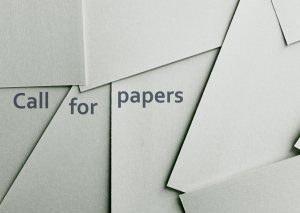 Call for Abstracts: New Directions in Media, Communication and Sociology (NDiMS) Conference
Call for Abstracts: New Directions in Media, Communication and Sociology (NDiMS) Conference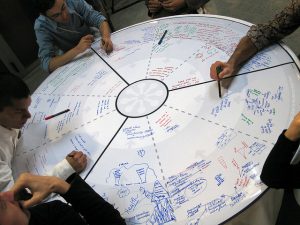 Ørecomm Team to Gather at the University of Coimbra
Ørecomm Team to Gather at the University of Coimbra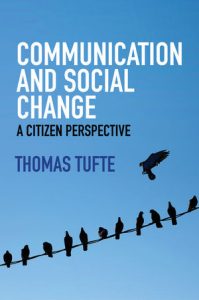 “Communication and Social Change – A Citizen Perspective” Published
“Communication and Social Change – A Citizen Perspective” Published C4D Network to Sum Up Global Communication for Development Practice
C4D Network to Sum Up Global Communication for Development Practice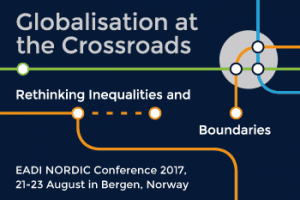 Entering Media and Communication into Development Conferences?
Entering Media and Communication into Development Conferences?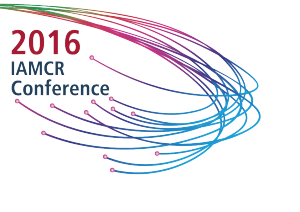 IAMCR Conference 2016: Communication for Development Highlights
IAMCR Conference 2016: Communication for Development Highlights Glocal Classroom Revisited – Storytelling & Social Change Leicester-Malmö
Glocal Classroom Revisited – Storytelling & Social Change Leicester-Malmö I EvalComDev International Conference: Call for Papers
I EvalComDev International Conference: Call for Papers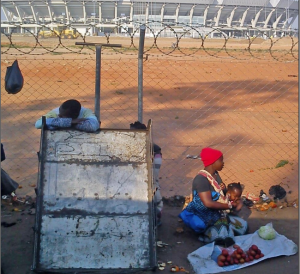 Looking for Media and Communication in Development Conferences: Devres 2016
Looking for Media and Communication in Development Conferences: Devres 2016